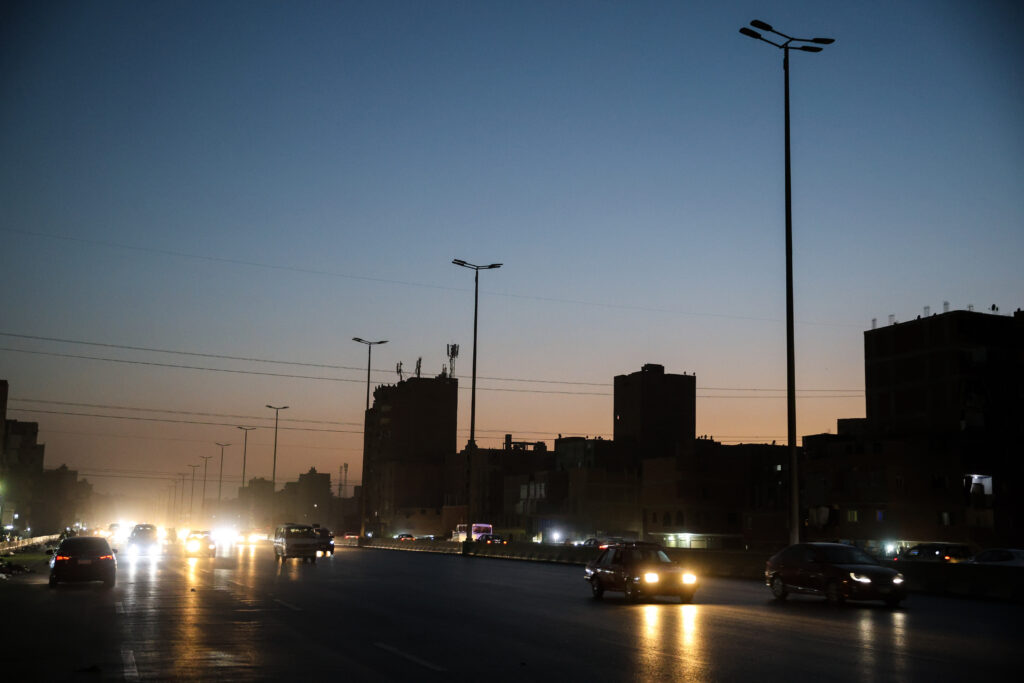Struggles Amidst Success: The Egyptian Economy’s Fragile Balancing Act
In June, Egyptian officials anticipated a month of celebration due to various macroeconomic milestones. However, these successes provided little comfort to the average Egyptian, who continues to grapple with severe economic challenges, including currency shortages, an unstable energy grid, and the constant threat of rising inflation.
Record Reserves, Persistent Inflation
Egypt’s Central Bank reported a record high of $46.1 billion in net international reserves at the end of May, surpassing the previous high of $45.5 billion recorded in February 2020. This increase, up from $41.1 billion in April, marks a significant achievement based on available data.
Simultaneously, urban headline inflation showed a marginal decline, dropping to 27.5% in June from 28.1% in May and 32.5% in April. Core inflation also decreased slightly to 26.6% in June, down from 27.1% in May and 31.8% in April. These reductions follow months of unrelenting inflation, exacerbated by the weakening of the local currency against the US dollar and acute shortages of foreign currency reserves.
Financial Support from IMF and World Bank
In late June, the World Bank announced a $700 million Development Policy Financing (DPF) for Egypt to promote private-sector participation, enhance macroeconomic and fiscal resilience, and support a greener growth pathway. This announcement came alongside an agreement with the International Monetary Fund (IMF) to release the third tranche of an $8 billion loan program, valued at $820 million.
Despite these financial infusions, the announcement of another expected increase in electricity and fuel prices touched a nerve, with fears that such moves could spark public backlash, especially given the recent wave of power cuts and price hikes for subsidized bread.
Regional Instability and Economic Strain
Since March, Egypt has received over $57 billion in support from the United Arab Emirates and the IMF amidst ongoing regional conflicts, including the prolonged war between Israel and Hamas in Gaza. UAE President Mohamed bin Zayed committed $35 billion to develop the Ras el-Hekma tourist attraction on Egypt’s Mediterranean coast, a decision rooted in both business and political motivations.
However, this miraculous influx of cash has not eased the widespread worry among Egyptians. External debt reached $168 billion in December 2023, up from $164.5 billion in September. Hidden debts, taken on by government-backed entities for large infrastructure projects, compound this financial stress.
Paying off a staggering $29.23 billion in external debt service for 2024, coupled with delays in releasing goods from ports due to hard currency shortages, means that even with new financial aid, Egyptians fear a return to pre-support economic conditions.
The war in Gaza has taken a toll on Egypt’s economy, impacting tourism and causing significant drops in Suez Canal revenues due to attacks by Yemeni Houthis in the Red Sea. Additionally, the influx of Sudanese refugees fleeing civil war has strained local resources further.
Electricity Crisis and Public Outcry
June’s “good news” was overshadowed by government concerns and widespread discontent. The hefty flow of $20 billion in “hot money” post-devaluation and a steep 600-point interest rate hike did little to ease public anxieties about the future.
Adding to the distress, the government extended daily electricity cuts from two to four hours, sparking public outrage. Egyptian Prime Minister Mustafa Madbouly reduced the cuts to three hours and promised resolution by mid-July after securing $1 billion for emergency natural gas shipments to power stations. The government’s inability to import necessary gas and petroleum products only heightened the irony, given prior claims of advancements in gas and electricity production.
Dark Times for Students and Citizens
The timing of electricity cuts was particularly detrimental as it coincided with final high school exams, crucial for determining students’ future academic and career paths. While urban areas managed to get more attention, rural regions suffered prolonged blackouts of up to ten hours, severely affecting students’ ability to study.
Despite the inflow of foreign financial support, many Egyptians remain skeptical about the future. Factors like dependence on imports for essential commodities and the threat of renewed inflation due to currency devaluation loom large.
Conclusion
Egypt’s recent economic achievements, despite being substantial on paper, have done little to alleviate the hardships faced by the average citizen. With inflation likely to rise again following another round of energy price hikes and ongoing devaluation of the local currency, the gap between macroeconomic success and everyday reality continues to widen for millions of Egyptians.
[Sources: Central Bank of Egypt, Bloomberg, World Bank, IMF]
